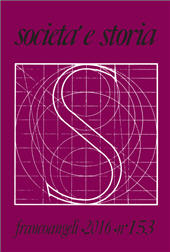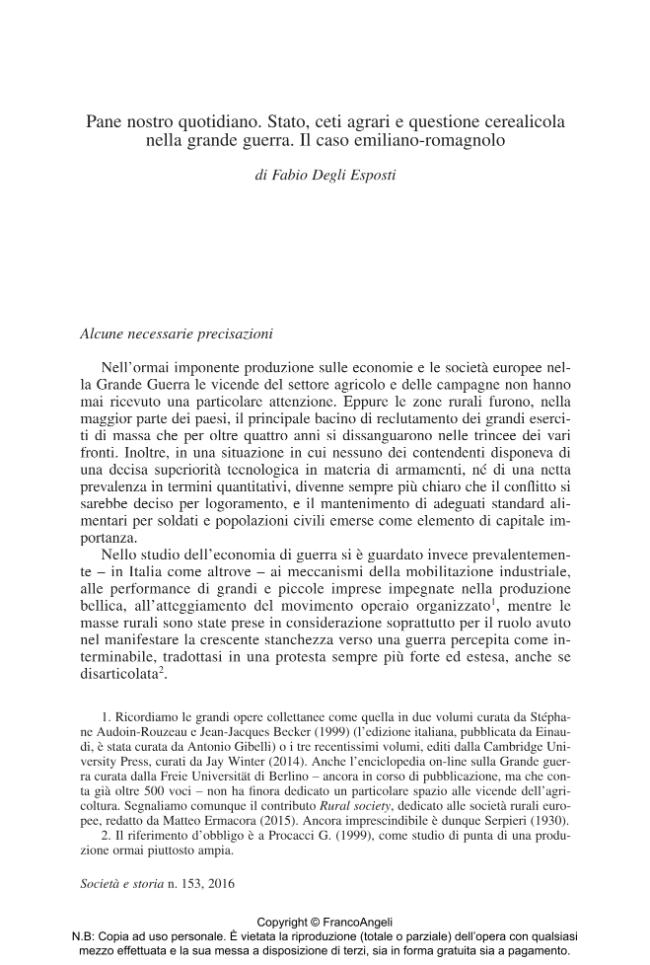Pane nostro quotidiano : stato, ceti agrari e questione cerealicola nella grande guerra : il caso emiliano-romagnolo
445-483 p.
Il saggio prende in esame un aspetto essenziale della produzione agricola, quello dei cereali destinati all'alimentazione umana: un settore in cui l'Italia non era in grado di coprire il proprio fabbisogno ed era costretta a ricorrere a massicce importazioni, divenute assai difficili per effetto della guerra. Partendo dai dati dei raccolti vengono presi in esame i provvedimenti varati dallo Stato per cercare di dare impulso alla produzione cerealicola. Il centro dell'analisi, tuttavia, è rappresentato dall'atteggiamento assunto dagli ambienti agrari nei confronti di queste richieste. Il saggio intende sottolineare come i margini d'azione furono sempre molto stretti: i ceti proprietari non intendevano sacrificare alla produzione cerealicola i redditi prodotti dalle colture specializzate, mentre le organizzazioni operaie non intendevano rinunciare alla propria libertà di azione sotto il profilo dei rapporti di lavoro e delle rivendicazioni salariali. Le campagne italiane, colpite più delle aree urbane dalle chi
amate alle armi, divennero inoltre teatro di proteste sempre più forti nei confronti della guerra, ponendo le premesse per il duro scontro politico e sociale del dopoguerra. [Testo dell'editore].
The essay takes into account an essential aspect of the agricultural production, that of cereals for human consumption: a sector in which Italy was not able to cover its needs and was forced to resort to massive imports, which had become very difficult during the war. Starting from the basic data the author examines the measures undertaken by the State to try to boost grain production. The focus of the analysis, however, is represented by the attitude taken by the agrarian lobbies towards these demands. The essay underlines how the margins for an effective action were always very close: the landlords were not ready to sacrifice the high income produced by specialized crops to the production of less valuable cereal, while the peasants' trade unions did not intend to give up their freedom of action in terms of labor relations and wage demands. The Italian rural areas, the most affected by calls to arms, became more and more the stage of strong protests against the war, paving the way towards the harsh political
and social confrontation of the post-war years. [Publisher's Text].
Fait partie de
Società e storia : 153, 3, 2016-
Articles du même numéro (disponibles individuellement)
-
Informations
Code DOI : 10.3280/SS2016-153002
ISSN: 1972-5515
DISCIPLINES
KEYWORDS
- Prima guerra mondiale, Italia, Emilia Romagna, economia di guerra, agricoltura, stampa agraria (o associazioni agrarie)
- First World War, Italy, Emilia Romagna, War economy, Agriculture, Agrarian press (Agrarian lobbies)



